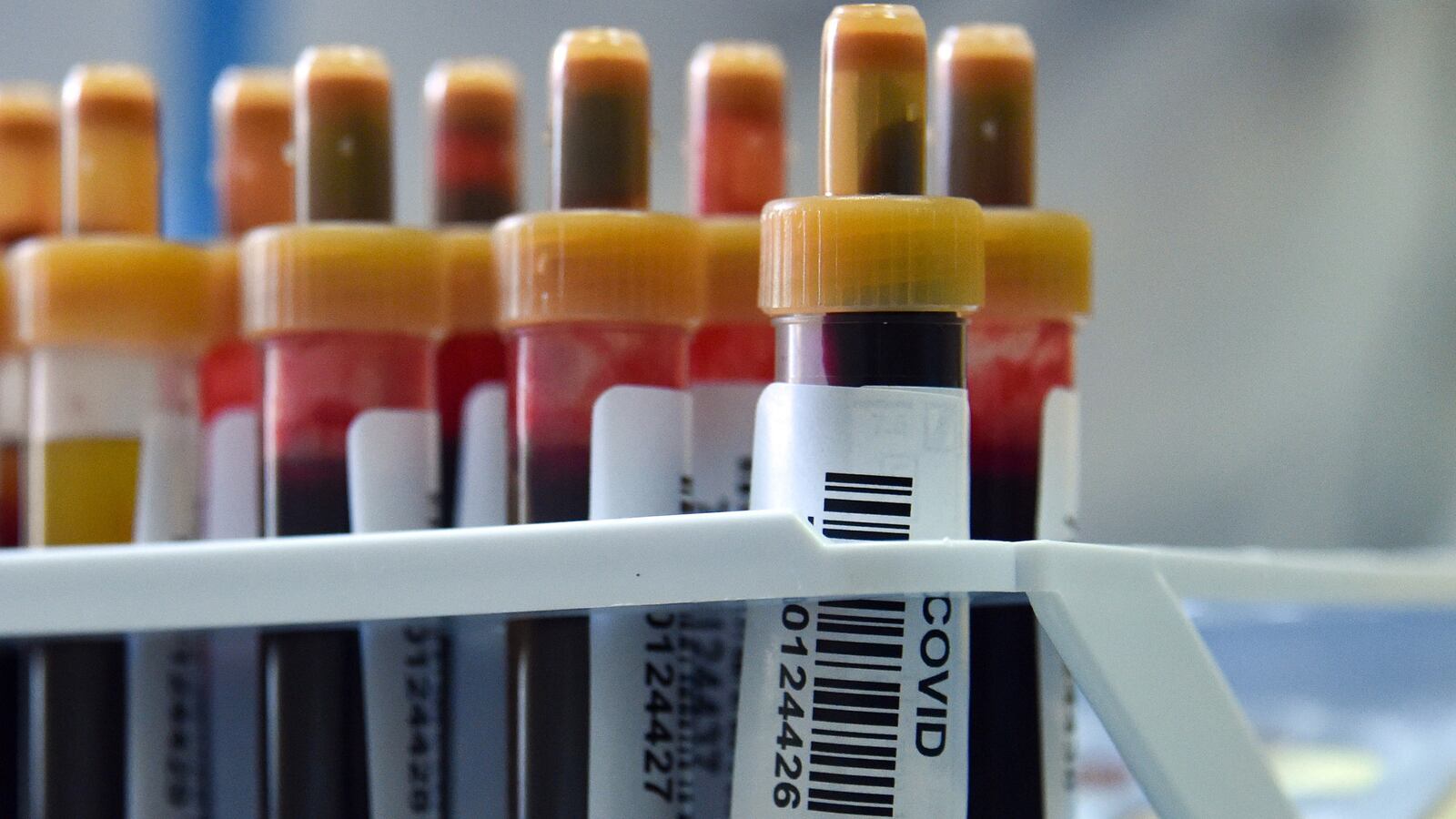Pharmaceutical firm Eli Lilly on Tuesday halted one of two trials of a major new novel coronavirus therapy after independent safety monitors observed an unspecified problem with the testing.
The Data Safety Monitoring Board froze trials of the Indiana company’s monoclonal antibody drug bamlanivimab, which was being administered in combination with the antiviral drug remdesivir. The board didn’t freeze separate trials testing bamlanivimab on its own, and the move doesn’t mean the company’s drug is unsound. But it does raise a slew of new questions about an antibody treatment that has been aggressively flogged by Donald Trump, who took a similar one himself.
Welcome to Rabbit Hole, where we dive deep on the biggest story. It’s for Beast Inside members only. Join up today.
Experts cautioned that, just as with recent vaccine pauses affecting two of the top candidates for a COVID-19 inoculation, a trial pause is not reason to panic. “It may be just something specific to one particular patient population or the design of that trial,” Otto Yang, an expert in infectious diseases at UCLA, told The Daily Beast.
In fact, scientists continue to express confidence in the basic science behind monoclonals, which despite Trump’s suggestion to the contrary, are not widely available, but do have promise—and may have helped him recover. “I would not expect this [pause] to have a big impact,” Jeffrey Klausner, a professor of medicine and public health at UCLA who previously worked at the U.S. Centers for Disease Control and Prevention, told The Daily Beast.
A monoclonal antibody is a lab-grown copy of a human immune cell. A monoclonal therapy can duplicate the functioning of a healthy immune system—and do it nearly instantaneously. Instead of your body learning to produce antibodies after exposure to a pathogen, you get lab-made antibodies directly via transfusion.
“Monoclonals in general have worked well for other applications [besides COVID], and the possible side effects are well understood,” Keith Jerome, a University of Washington virologist, told The Daily Beast.
The U.S. Food and Drug Administration granted White House physicians a compassionate-use waiver to dose Trump with a separate monoclonal from New York pharma Regeneron shortly after he tested positive for the novel coronavirus earlier this month.
Trump took the Regeneron therapy in combination with remdesivir and the anti-inflammatory steroid dexamethasone—an untested mix of drugs that Irwin Redlener, the founding director of Columbia University’s National Center for Disaster Preparedness, called “confusing.”
Trump falsely described the monoclonal therapy in particular as a “cure.” He also touted Eli Lilly’s monoclonal drug in the days before the company froze its testing. Lab-grown antibodies, while promising on a therapeutic level, aren’t known to confer immunity or totally eliminate an existing viral load. Experts agree that monoclonal drugs are better for preventing infections than reducing them after the fact.
Eli Lilly announced the bamlanivimab testing halt on Tuesday. “Lilly trusts the judgment of the independent DSMB and supports its decisions to exercise caution in ensuring the safety of the patients participating in this study,” the company stated.
The bamlanivimab freeze is the third major safety halt in COVID therapies or vaccines since early September. Safety boards also halted separate trials testing vaccine candidates from AstraZeneca and Johnson & Johnson after test subjects in those trials fell ill. It’s still unclear whether the illnesses in those trials were related to the vaccine being tested.
The safety pauses underscore the risk involved in developing new drugs and vaccines. The ongoing novel coronavirus pandemic, which has killed more than a million people since December, including 218,000 in the United States, has only raised the stakes. The U.S. government has juiced pharma R&D with billions of dollars in funding as part of Operation Warp Speed, its therapy-and-vaccine accelerator.
Authorities and the public are clambering for coronavirus therapies and vaccines. But safety monitors, wary of releasing an unsafe drug or vaccine, keep pumping the brakes.
That’s not necessarily a bad thing. Safety boards are an “early-warning system,” Lawrence Gostin, a Georgetown University global-health expert, told The Daily Beast. If there are signs that a new drug or vaccine might be unsafe, “their job is to tell researchers or a company to stop the trial.”
But a safety pause doesn’t mean a new medical product actually is unsafe—only that it might appear to be so at a particular point in testing. After reviewing data and procedures, safety boards can, and usually do, give researchers the okay to resume testing.
It’s worth noting, however, that AstraZeneca’s U.S. vaccine trials remain on hold six weeks after the company halted testing. Trials of that vaccine have resumed in the United Kingdom, Brazil, India, and South Africa.
Despite the Eli Lilly hiccup, Operation Warp Speed is bullish on monoclonal therapies for treating COVID. After all, monoclonals have worked on other viral diseases. “Giving antibodies early in a disease rapidly helps in clearing a virus from the body,” Janet Woodcock, director of the FDA’s Center for Drug Evaluation and Research and a top Operation Warp Speed official, told reporters last week, before the Eli Lilly pause.
Woodcock highlighted early data from the bamlanivimab trials that indicated a “decreased number of hospitalizations” in people with COVID who took the monoclonal drug, compared to people with COVID who didn’t take the drug.
Regeneron and Eli Lilly have both asked the FDA to approve their monoclonals for emergency use. The applications are pending.
Anticipating that monoclonals from Regeneron and Eli Lilly will ultimately prove safe and effective—and that the FDA will soon approve one or both for emergency use—Operation Warp Speed has already ordered several hundred thousand doses from the two companies.
Paul Mango, HHS deputy chief of staff for policy and a top Operation Warp Speed official, told reporters the companies are on track to produce a combined million doses by the end of the year.
It’s too soon to say whether the Eli Lilly testing freeze will weigh on those plans.







